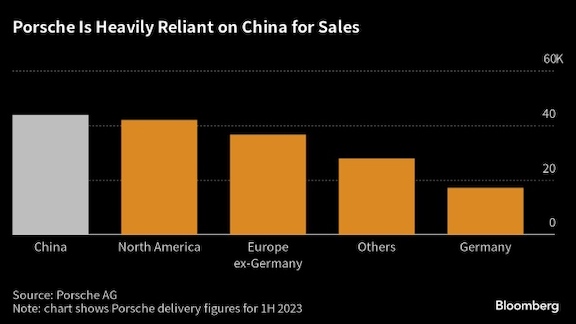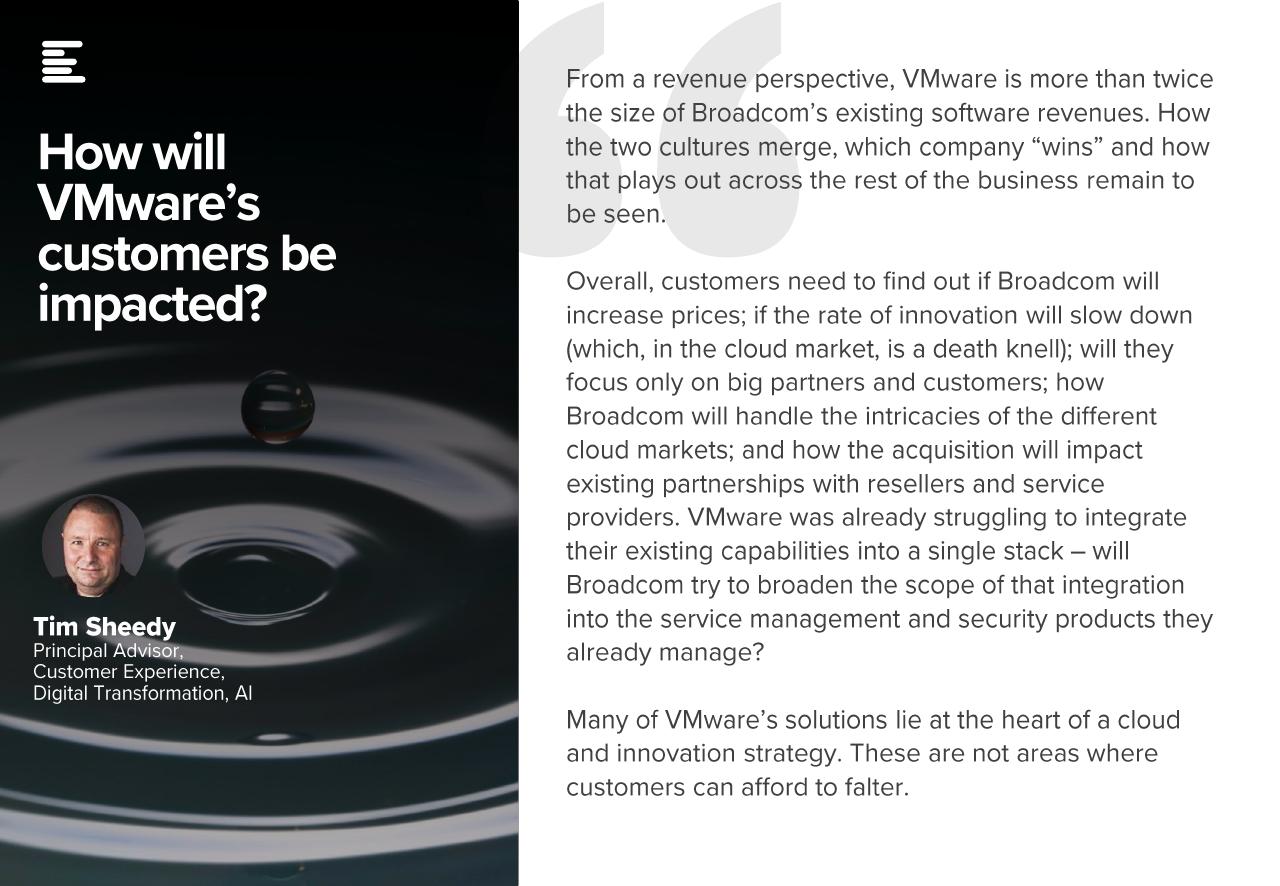Are BMW And Porsche Losing Ground In China? A Market Analysis

Table of Contents
The Rise of Domestic Chinese Luxury Brands
The Chinese luxury car market is witnessing a dramatic shift, with the emergence of powerful domestic brands significantly impacting established players like BMW and Porsche. This competition is reshaping consumer preferences and challenging the dominance of foreign automakers.
Increased Competition from Local Players
The rise of Chinese luxury car brands, such as Nio, XPeng, and Li Auto, presents a formidable challenge to BMW and Porsche. These domestic brands leverage technological advancements, aggressive pricing strategies, and strong government support to gain market share.
- Nio's ET7: This electric sedan boasts cutting-edge technology, including advanced driver-assistance systems and battery swap technology, appealing to tech-savvy Chinese consumers.
- XPeng's P7: Known for its sophisticated autonomous driving capabilities and competitive pricing, the P7 has quickly become a popular choice among Chinese luxury car buyers.
- Li Auto's One: This extended-range electric SUV offers a compelling blend of electric performance and the convenience of a gasoline-powered range extender, addressing range anxiety concerns.
Government initiatives, including subsidies for electric vehicles and investments in charging infrastructure, further bolster the growth of these domestic brands, creating a more challenging environment for foreign competitors like BMW and Porsche. This increased competition is directly impacting their market share in the Chinese luxury car market.
Shifting Consumer Preferences
Chinese consumer preferences are changing rapidly, with a growing emphasis on technological innovation and a preference for domestically produced vehicles. Brand loyalty, once a strong factor, is becoming less influential as consumers prioritize features and technological advancements.
- Technological Innovation: Chinese consumers are increasingly drawn to vehicles equipped with advanced driver-assistance systems, large touchscreens, and seamless connectivity features.
- Domestic Production: The perception of domestic brands as technologically advanced and supporting the national economy has led to increased consumer preference for these vehicles.
- Patriotism: A growing sense of national pride is influencing buying decisions, with many Chinese consumers actively choosing domestic brands over foreign ones.
These shifting preferences are reflected in consumer surveys and sales data, which show a clear upward trend in the popularity of Chinese luxury car brands.
Economic and Geopolitical Factors Affecting Sales
Economic fluctuations and geopolitical tensions significantly influence luxury car sales in China. External factors play a crucial role in shaping the market dynamics and impacting the performance of both BMW and Porsche.
Economic Slowdown and Trade Tensions
Economic slowdowns and trade tensions between China and the West can significantly impact consumer spending on luxury goods, including luxury cars. Tariffs and economic uncertainty can reduce consumer confidence, leading to decreased sales.
- Tariffs: Increased tariffs on imported vehicles directly increase the price of BMWs and Porsches, making them less competitive against domestically produced alternatives.
- Economic Uncertainty: Economic instability can lead to reduced consumer spending, particularly on non-essential luxury items.
- Changing Spending Patterns: Economic downturns often cause consumers to prioritize essential spending over luxury purchases.
These economic factors directly impact the sales figures of foreign luxury car brands in China.
Government Regulations and Policies
Government regulations and policies in China play a significant role in shaping the automotive industry. Emission standards and incentives for electric vehicles heavily influence the market.
- Emission Standards: Stricter emission standards favor electric vehicles and put pressure on traditional gasoline-powered luxury cars from BMW and Porsche.
- EV Incentives: Government incentives for electric vehicle purchases boost the competitiveness of domestic electric car manufacturers.
- Import Restrictions: Government regulations can indirectly affect import volumes and the market presence of foreign carmakers.
These government policies are designed to promote the growth of the domestic automotive industry and can create significant challenges for international brands.
BMW and Porsche's Strategic Responses
Faced with increasing competition and evolving market dynamics, BMW and Porsche are implementing various strategies to maintain their market share in China.
Adaptation and Innovation
To remain competitive, BMW and Porsche are adapting their strategies by localizing products and launching targeted marketing campaigns. Investments in electric vehicles are also a crucial part of their strategy.
- Product Localization: Adapting models to suit Chinese consumer preferences, including specific features and design elements.
- Targeted Marketing: Developing marketing campaigns specifically tailored to the Chinese market and its unique cultural nuances.
- Electric Vehicle Investments: Increasing investment in research and development of electric vehicles to capitalize on the growing demand for EVs in China.
These strategic adaptations are critical to maintaining competitiveness in the fast-changing Chinese automotive market.
Future Outlook and Predictions
The future for BMW and Porsche in China remains uncertain. While they possess strong brand recognition and a loyal customer base, the rise of domestic competitors and evolving market dynamics will likely continue to impact their market share.
- Market Share Prediction: A potential decline in market share for BMW and Porsche is likely, unless they successfully adapt to the new competitive landscape.
- Sales Forecast: Sales growth for these brands may slow down compared to the explosive growth of the overall Chinese luxury car market.
- Long-Term Strategy: Long-term success for these brands will hinge on their ability to innovate, adapt, and cater effectively to the evolving needs and preferences of Chinese consumers.
Conclusion: Are BMW and Porsche Losing Ground in China? A Concluding Analysis
Our analysis reveals that BMW and Porsche face significant challenges in the rapidly evolving Chinese luxury car market. The rise of powerful domestic brands, shifting consumer preferences, and economic and geopolitical factors all contribute to a more competitive landscape. While BMW and Porsche are implementing strategic responses, the extent to which they can maintain their market share remains uncertain. The future likely involves a more balanced market, with domestic brands playing an increasingly prominent role. Stay informed about the ever-changing dynamics of the Chinese luxury car market by following our blog for more in-depth analyses on BMW, Porsche, and other leading brands in the Chinese luxury car market.

Featured Posts
-
 Understanding Ariana Grandes Recent Transformation Hair Tattoos And Professional Support
Apr 27, 2025
Understanding Ariana Grandes Recent Transformation Hair Tattoos And Professional Support
Apr 27, 2025 -
 Broadcoms V Mware Acquisition At And T Highlights A Massive Price Surge
Apr 27, 2025
Broadcoms V Mware Acquisition At And T Highlights A Massive Price Surge
Apr 27, 2025 -
 Pago De Licencia De Maternidad Para Tenistas Wta Un Hito En El Deporte Femenino
Apr 27, 2025
Pago De Licencia De Maternidad Para Tenistas Wta Un Hito En El Deporte Femenino
Apr 27, 2025 -
 Resistance Mounts Car Dealers Renew Opposition To Ev Mandates
Apr 27, 2025
Resistance Mounts Car Dealers Renew Opposition To Ev Mandates
Apr 27, 2025 -
 Two Wind Farms And A Pv Plant Approved For Pne Group In Germany
Apr 27, 2025
Two Wind Farms And A Pv Plant Approved For Pne Group In Germany
Apr 27, 2025
